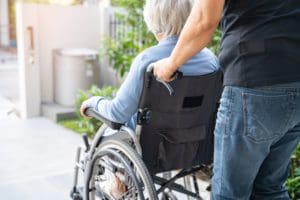
Once someone enters a nursing home, even for a temporary rehabilitative stay, it isn’t always easy to move out again – especially for those receiving Medicaid benefits to pay for care. While some residents may prefer nursing home care to living on their own, others would rather be independent. Some have only transitioned to a skilled nursing community due to a rehab need. For residents who want to move out but need some assistance to live on their own, there may be help available. A federal program is trying to help nursing home residents in some states regain their independence.
In 2005, Congress established a federal program called Money Follows the Person that is designed to make it easier for nursing home residents who qualify for Medicaid to move out. Currently, 34 states and the District of Columbia participate in the program, which provides personal and financial support to help eligible nursing home residents live on their own or in group settings.
To qualify for the Money Follows the Person program a resident must meet the following criteria:
- The resident must have lived in a Medicaid-funded nursing home or other institution for a minimum of 60 days.
- The resident must be eligible for Medicaid, which means he or she must have limited income and assets, for at least one day prior to leaving the nursing home.
- The resident must need a nursing home level of care.
The benefits provided by the Money Follows the Person program vary depending on the state. In general, it provides funding for transitional services, which could include paying for a security deposit, moving expenses, and furniture. It also can help with hiring personal care assistants, making modifications to a house, and providing respite for caregivers. These benefits can be in addition to benefits provided through a state’s Medicaid waiver program.

Recent Comments